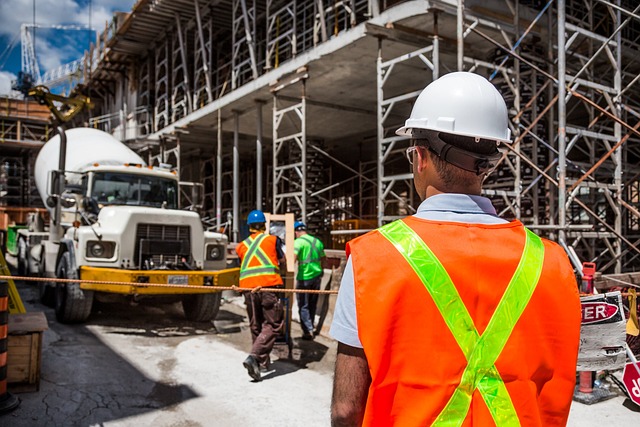Blackstone Solicitors understand that construction projects can be stressful, especially when disputes arise with your contractor. If you’re facing disagreements over payments, delays, or the quality of work, navigating the legal landscape can seem daunting. Here, we’ll introduce you to adjudication, a fast-paced and cost-effective method for resolving construction disputes in England and Wales.
Free Initial Telephone Discussion
For a free initial discussion with a member of our New Enquiries Team, get in touch with us today. We are experienced in dealing with all the legal aspects of adjudication in construction, and once instructed, we will review your situation and discuss the options open to you in a clear and approachable manner. Early expert legal assistance can help ensure you are on the best possible footing from the start and also avoid the stress of dealing with these issues on your own. Simply call us on 0345 901 0445 or click here to make a free enquiry and a member of the team will get back to you.
What is Adjudication?
Think of adjudication as a streamlined legal process specifically designed for the construction industry. It allows parties in a construction contract (you, the client, and the contractor) to settle their dispute with the help of a neutral third party – the adjudicator.
Here’s the key difference from traditional litigation: adjudication is quicker and less formal. Decisions are typically reached within 28 days, minimizing disruption to your project.
When Can You Use Adjudication?
The beauty of adjudication lies in its flexibility. You can use it for a wide range of construction disputes, including:
- Payment disputes: This is a common issue, where you disagree with the contractor’s invoices or believe they haven’t paid a subcontractor.
- Variations: If changes are made to the original building plans, disagreements can arise regarding the cost and timeframe of these variations.
- Delays in completion: Construction rarely goes exactly according to plan. Adjudication can help determine who’s responsible for delays and any associated costs.
- Defective Work: If the finished work doesn’t meet the agreed standards, adjudication can help establish liability and determine the cost of rectification.
It’s important to note: While adjudication is widely applicable, it’s not suitable for all situations. Complex legal issues or disputes involving professional negligence might be better suited for traditional litigation.
The Benefits of Adjudication
Here’s why adjudication might be the right choice for your construction dispute:
- Speed: Decisions are typically reached within 28 days, minimizing disruption to your project and keeping costs down.
- Cost-effective: Compared to litigation, adjudication is a more affordable way to resolve disputes.
- Less Formal: The process is less complex and time-consuming than court proceedings.
- Expert Decision-Makers: Adjudicators are construction industry professionals with the technical knowledge to understand the specifics of your dispute.
- Enforceable Decisions: While not technically binding like a court judgment, an adjudicator’s decision is usually enforceable through the courts.
How Does the Adjudication Process Work?
Here’s a simplified breakdown of the adjudication process:
- Notice of Adjudication: You, with the help of your solicitor, will formally notify the contractor of your intention to refer the dispute to adjudication. This notice will outline the specific issues in contention and the remedy you seek.
- Appointing an Adjudicator: Both parties can agree on an adjudicator, or if an agreement can’t be reached, a specialist adjudication nominating body like the Chartered Institute of Arbitrators (CIArb) can appoint one for you.
- Submissions: Each party presents their case to the adjudicator, including supporting evidence and arguments.
- The Adjudicator’s Decision: The adjudicator will consider the submissions from both sides and issue a written decision within the stipulated timeframe (usually 28 days). This decision will be legally binding, outlining who owes whom what amount (if applicable).
- Enforcement: If the losing party fails to comply with the adjudicator’s decision, you can apply to the court to enforce it.
Things to Consider Before Initiating Adjudication
While adjudication offers several advantages, here are some points to ponder before you proceed:
- Cost: Although cheaper than litigation, there will still be costs associated with legal representation and the adjudicator’s fees.
- Limited Scope: Adjudication decisions are final and binding on the specific dispute at hand. They don’t set legal precedents and can’t be appealed.
- Precedent in Your Contract: Some construction contracts might have clauses that exclude adjudication or outline specific procedures to be followed. It’s crucial to review your contract carefully with your solicitor.
Blackstone Solicitors: Your Partner in Resolving Construction Disputes
At Blackstone Solicitors, we have a proven track record of successfully guiding clients through the adjudication process. Our construction law specialists will:
- Advise you on whether adjudication is the most suitable course of action for your specific case.
- Help you prepare and submit a strong case to the adjudicator.
- Represent you throughout the adjudication process.
- Assist you in enforcing the adjudicator’s decision, if necessary.
How We Can Help
We have a proven track record of helping clients deal with adjudication in construction. We will guide you diligently and ensure all checks are carried out swiftly and efficiently and we firmly believe that with the right solicitors by your side, the entire process will seem more manageable and far less daunting. You can read more about the range of construction law services we offer by clicking here: https://blackstonesolicitorsltd.co.uk/construction-solicitors/
How to Contact Our Construction Solicitors
It is important for you to be well informed about the issues and possible implications of an adjudication. However, expert legal support is crucial in terms of ensuring a positive outcome to your case.
To speak to our Corporate solicitors today, simply call us on 0345 901 0445, or click here to make a free enquiry. We are well known across the country and can assist wherever you are based. We also have offices based in Cheshire and London.
Disclaimer: This article provides general information only and does not constitute legal advice on any individual circumstances.





